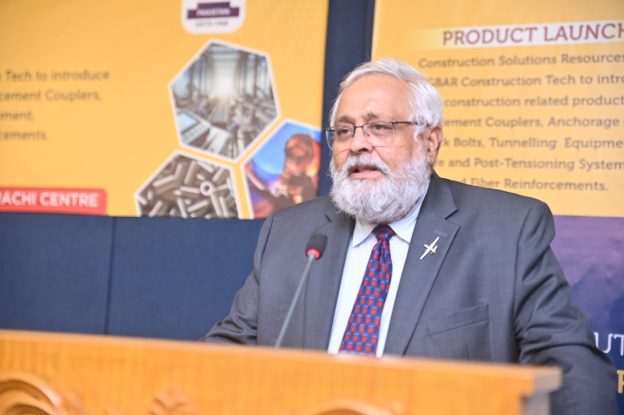The PEC Elections 2024 are shaping up to be a complex and dynamic contest. The diverse backgrounds of candidates, shifting expectations of the council’s role, and evolving campaign strategies all contribute to a landscape that is likely to produce an outcome with significant implications for the engineering profession in Pakistan. As the election approaches, stakeholders will need to navigate these evolving dynamics carefully to achieve their objectives and influence the future direction of the PEC.
Just two weeks before the Pakistan Engineering Council (PEC) Elections 2024, almost all groups of engineers have finalized their panels and kicked off their election campaigns—the exercise that normally would have begun much earlier in the past. Only one group, led by a constructor, was observed hosting meetings mostly in Khyber Pakhtunkhwa province much earlier, while all others were busy either in parleys with prospective allies or engaged in internal discussions
Interestingly enough, the composition of panels announced by the groups reveals a different story unfolding in the engineering education sector in Pakistan. Over 70 percent of the candidates from the major contesting groups come from academia, whose institutions are ironically experiencing a decline due to a consistent decrease in admissions of engineering students. Equally intriguing is the fact that none of the supreme leaders of these groups come from academia—the category that typically secures them the top position in the council.
With armies of academicians in their ranks, The Engineers Pakistan (TEP), the NEA-PEG Alliance, the Engr. Najeeb-led Development Group, the Pakistan Engineers Forum (PEF), and the United Engineers Pakistan (UEP) are all in the fray. However, none seem to be functioning perfectly as of yet. For instance, TEP has struggled to find a suitable candidate for the post of vice chairman in Sindh; the NEA-PEG campaign in Sindh has yet to gain momentum; PEF, running alone for the second time, has failed to form an alliance despite active engagement with the Waseem-led PEG; and TEP and Najeeb have been unable to secure support from Qadir Shah for the second time.
Additionally, there are deeper issues that cannot be overlooked in this election. One significant issue is the differing perceptions of the ideal PEC. Some groups view the council more as a welfare organization for engineers rather than a regulatory body. Leaders of TEP and PEF believe that resuming their previous initiatives is the only way to set the council on the right path. In contrast, NEA’s ally and current leader, Engr. Waseem Nazir, advocates for macro-level reforms of the council. This perspective is not shared by Qadir Shah and Mukhtiar Shah, who, under Engr. Najeeb Haroon’s leadership, claim superior performance, asserting that no one has performed better than Haroon.
Under this scenario, the election campaigns of the five groups are expected to attract a larger number of engineers to the polling stations this time. An additional factor might be TEP’s extra effort in Punjab, with Jawed Salim Qureshi being the top candidate after a one-term gap. However, the current situation suggests that fewer engineers from the corporate sector are actively engaged, and the contest is likely to be between engineers from public sector organizations and academia.
Another significant factor is that many universities, which typically supported a single group in past elections, are now divided. This division could impact the election results this time.
Interestingly, the two leading groups—TEP and NEA—have struggled to address internal issues in Sindh. TEP has had difficulty forming its panel in the province, and its failure to find a strong candidate for the vice-chairman position is telling. In the NEA-PEG Alliance, Qadir Shah’s team has not succeeded in crafting a comprehensive campaign and is relying on traditional methods to attract voters. In contrast, their ally, Engr. Waseem Nazir, has run a distinctly different campaign in Punjab.
A Fresh Perspective on PEC Elections 2024
on 06/08/2024







